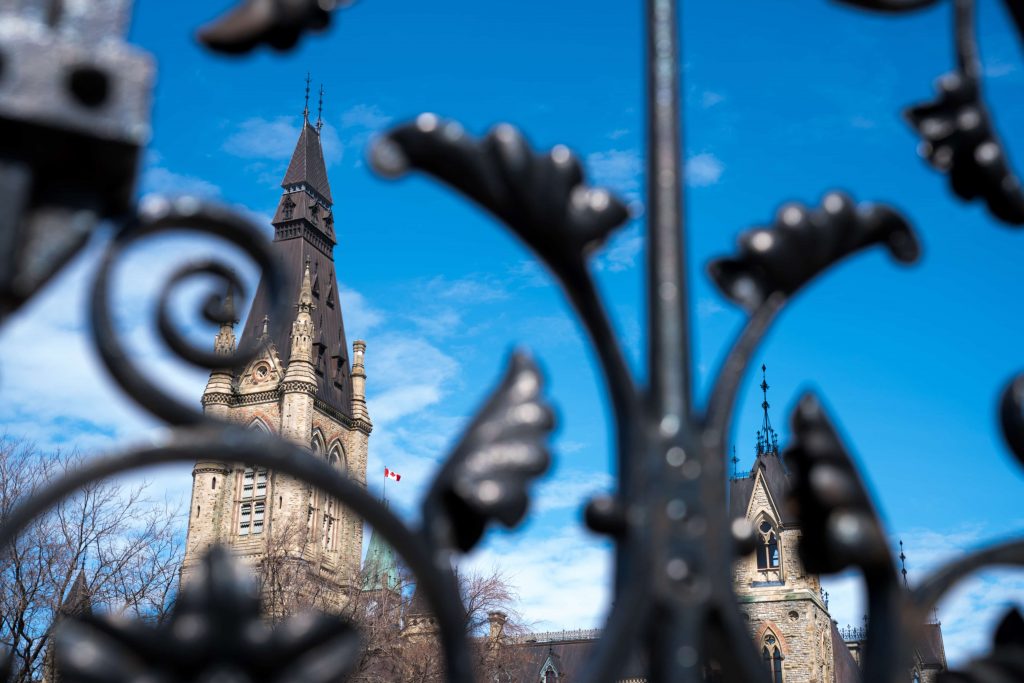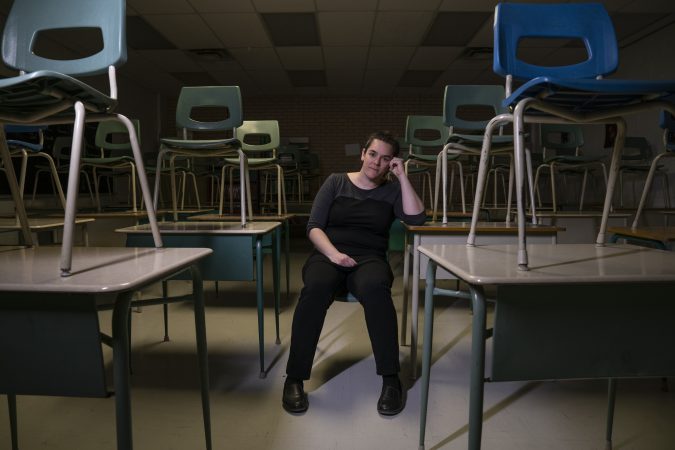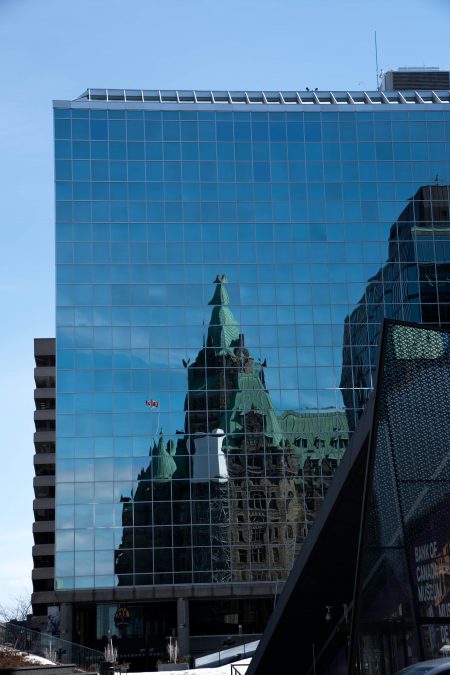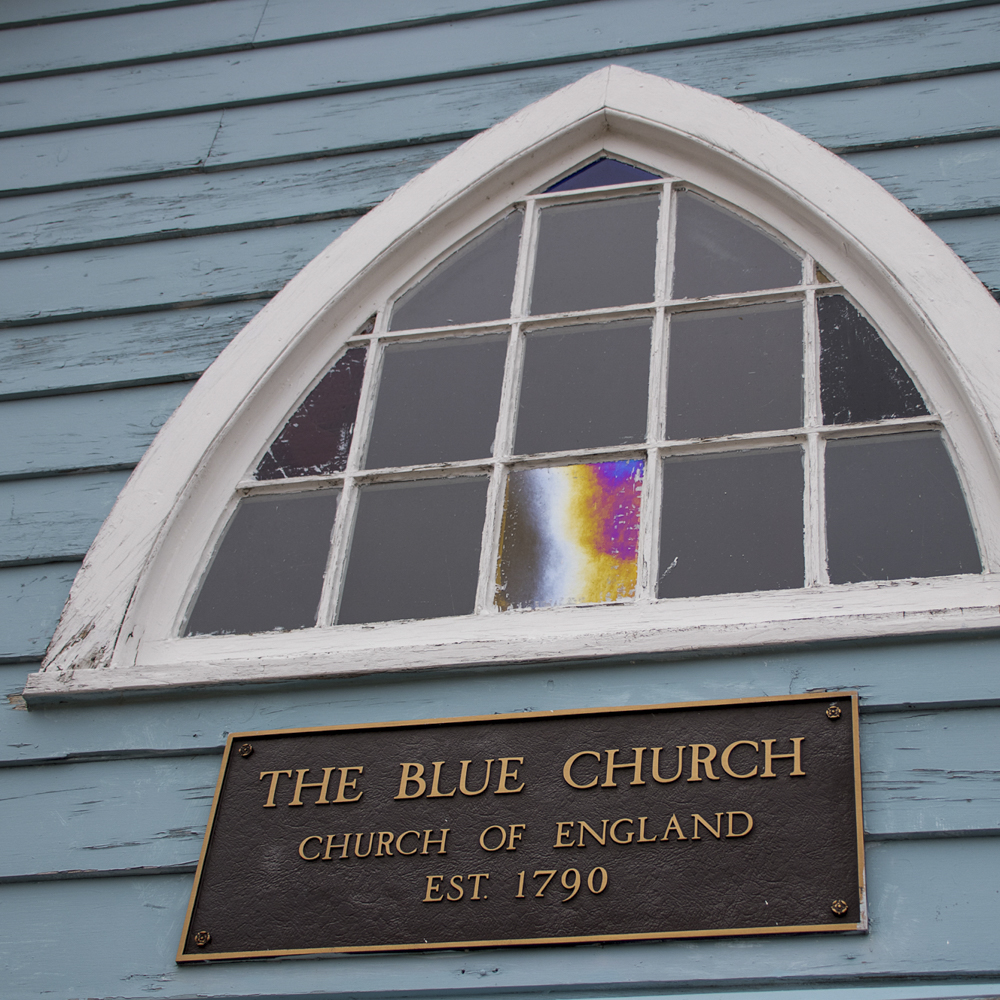Barriers and bridges in the fight to preserve French language in Quebec
A Border Built on Bridges

GATINEAU — A peppy French voice came over the school loudspeaker for the daily announcement, but no one seemed to listen. The class of 16- and 17-year-olds knew that this was their final chance to talk with each other until the loudspeaker turned off with a click, signaling the start of class.
Though most of the chatter had been in French, a student helped his teacher regain the class’ attention in terms any English listener could understand: “Shut up!”
A mix of the two languages is normal for students at the high school in Gatineau, Quebec. Most of the students can effortlessly switch between English and the official language of Quebec, where about 95 percent of its about 8.5 million population can speak French.
The preservation of the French language in Quebec is no small issue. The province used to recognize both French and English as official languages, but tensions rose in the late 1960s as English started to dominate in workplaces and among immigrant communities. To combat this, a 1977 law known as Bill 101 made Quebec Canada’s sole French-only province.
Bill 101 declares Quebec citizens’ right to conduct business and receive services and education in French. For example, public signs are allowed to be written in multiple languages, but French is required to be the most evident.
The back and forth between French and English in Quebec has a long and sometimes nationalistic political history. But for the inhabitants of Gatineau, a border city where Bill 101’s regulations apply but where the presence of English is strong, that back and forth is part of everyday life.
A high school perspective
Just an hour from the U.S. border and a 10-minute drive from the Champlain Bridge into Canada’s largely bilingual capital Ottawa, l’École Secondaire Grand-Rivière (Grand-Rivière Secondary School) is a microcosm of the language fusion in Quebec’s border communities.
Joannie St-Pierre, a French teacher and doctoral candidate in education, does not forbid English in her classroom, though she said she sometimes asks students nicely to use French. Grand-Rivière operates in French like other public schools in the city, but students tend to have an affinity for English.
“It’s not cool to speak French because all they are listening to on TV is English,” St-Pierre said.
Elizabeth, a sophomore at Grand-Rivière, saw this language-mixing phenomenon in her own experience. At the request of the school, we only used students’ first names.
“There’s lots of English,” she said, talking about phrases she has heard enter into otherwise French conversations. “Especially swearing,” she added with a giggle.
Elizabeth does her coursework at Grand-Rivière in French and speaks it with some peers, but she can operate in English just as well.
“I don’t think I’ve ever spoken to you in French,” Elizabeth said to her friend Munishka, who recently moved to Quebec from the primarily English-speaking province of Alberta.
Munishka thought about it for a moment and realized it was true. They are both fluent in French, but they developed their friendship in English.
In Canada, Munishka is considered an allophone, their term for an immigrant whose first language is neither English nor French. She learned English after immigrating to Alberta and is learning French now that she lives and goes to school in Quebec.
One of the primary purposes of Bill 101’s language measures was to integrate allophones into the francophone — or French-speaking — community, according to the Canadian Encyclopedia. Before Bill 101 was in place, many allophones living in Quebec were learning English as their second language and the francophone population was on the decline.

Munishka’s classmate Ketsia had a similar language experience. Ketsia is an allophone from the Democratic Republic of the Congo, but she got used to speaking English when she lived in Ottawa. She learned French once she moved to Gatineau but said she likes English better.
Ketsia feels that the regulations of Bill 101 fall harder on Gatineau, as opposed to communities further northeast in Quebec.
“There they speak French because there is a big French community,” she said. “But here it’s imposed.”
St-Pierre admitted that she was upset to hear students express discontent with the French part of their identity. She explained that though the allophone and anglophone — or English-speaking —  minorities in Quebec may feel like French is imposed on them, the reverse feels true to the francophone minority in other Canadian provinces like the neighboring Ontario.
“They always have to fight to use their own language,” St-Pierre said. She cited a recent example in which Ontario defunded the project for an Ottawa French-language university, despite the city’s support.
On top of their desire to integrate students into the francophone community and culture, St-Pierre and her colleagues at Grand-Rivière recognized the importance of teaching students English as well. In Quebec, students are required to take English courses until college, a dedication to second-language learning unparalleled by other provinces.
“If you talk to teachers in English schools, they won’t have this same openness to culture and language, even if they live in a bilingual country,” St-Pierre said.
English or French?
St-Pierre’s partner, Dennis Giguère, grew up in Sherbrooke, Quebec, but English was his first language. As a kid, he said, French was the language his parents used to hide things from him.
But Giguère quickly caught on and spans the worlds of French and English as a bilingual adult. He speaks in French at home in Gatineau with St-Pierre and their kids, but English dominates his workplace across the river in Ottawa.
For him, it is not a question of either or. “I feel it acutely when there’s discrimination against either language,” he said.
Giguère, a veteran of the Canadian military and now a senior planner at Public Safety Canada, recalled a time he was scrolling through his Twitter feed and saw an Ottawa health notice posted in English only. He remembered feeling slightly indignant.
“Like, where’s the French?” he said.
He soon realized the notice was posted in French as well, just on a separate, francophone version of the account. Even so, seeing a unilingual public notice was out of the ordinary and bothersome for him.
Canada is an institutionally bilingual country, which means that all employees of a government office like Giguère’s are expected to be proficient in both English and French. But Giguère said English still tends to dominate. He also noticed this during his time in the military.
“If there’s one person in the room who speaks English, guess what language you’re speaking?” he said.

Preserving a minority culture
The teachers at Grand-Rivière observed the same predominance of English, both with their students and in their personal lives. François Boisvert, a social studies teacher, said that he does not even attempt to speak French when he goes across the bridge to Ontario.
“People think Canada is a bilingual country,” Boisvert said. “But it’s not a bilingual country. There are people who speak French, and people who speak English.” Â
Boisvert said he felt that Bill 101’s enforcement of French language in the public sphere is an important part of preserving identity in Quebec — a compromise that allows the country’s francophone minority to protect its language and culture.
“It’s not because of Canada,” Boisvert said. “It’s because English is a powerful language.”
Beyond just a question of language, Bill 101 was part of a greater movement by citizens of Quebec who wanted to protect their political, economic and social autonomy. The movement came to a climax during a 1995 referendum, when the province came within a percentage point of separating from Canada.
Boisvert takes immense pride in his Quebec roots and believes its francophone culture is worth maintaining, even bolstering. He is part of a minority in Quebec that, for various reasons, still believes in the value of a sovereign Quebec.
“I think we can have an original cultural model in the Western Hemisphere,” Boisvert said. “I think it is cool.”
He resisted the idea that Quebec’s francophone culture ties the province to France. Boisvert pointed to the impact of indigenous populations on the region, and to the fact that most of the francophone people in Quebec are descended from early French settlers. He mentioned that even his own family name, which translates to Greenwood, is native to Quebec rather than Europe.
As a father, Boisvert said he tried to push francophone culture on his daughter. He finds that youth in Quebec are generally more interested in American culture, though he personally feels that French-Canadian culture is more alive. Unlike St-Pierre, Boisvert maintains strict French language and cultural immersion in his classroom.
“The objective here is to teach them to love their language — not to see it as an obstacle, but to think of it as an opportunity,” he said.
Boisvert grew up with a different dynamic than his students at Grand-Rivière do. In his hometown in East Montréal, he said, the French and English communities were separate, and nobody around him spoke English.
“It’s different here than Montréal, more frontier,” he said.













